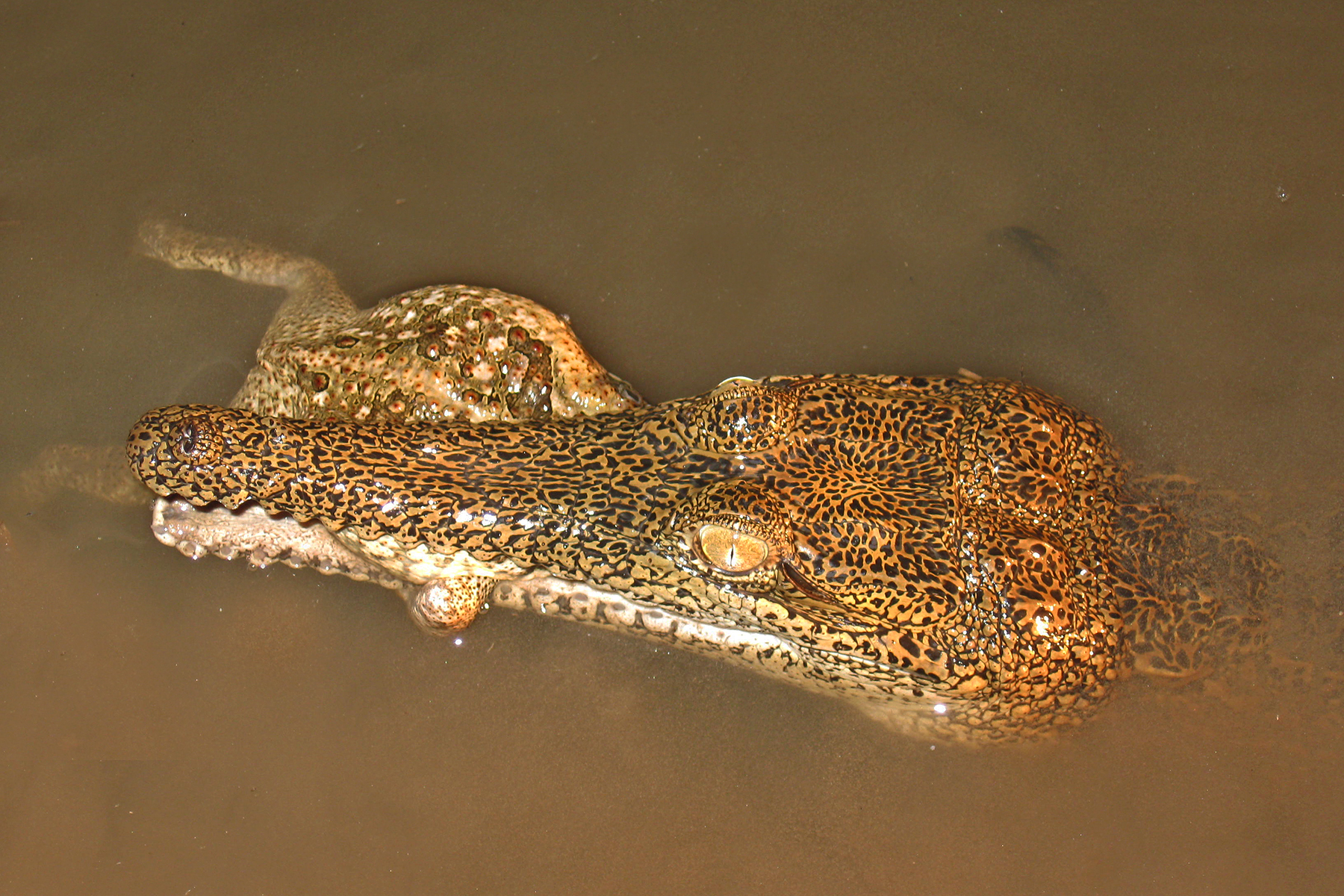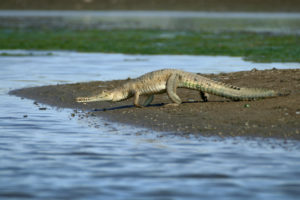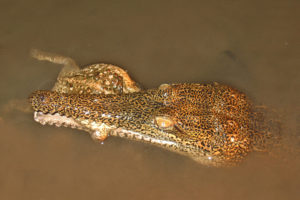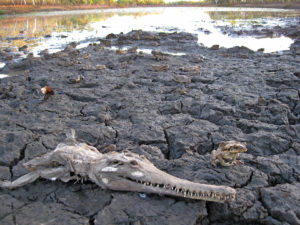23 October 2019
Australian freshwater crocodiles (Crocodylus johnstoni) are the largest freshwater predators on the continent.
They are widespread across the northern tropics yet, compared with their saltwater cousins, we know little about how they are responding to environmental change.
A new paper from Hub researchers, led by CSIRO’s Dr Ruchira Somaweera, cautions that this lack of knowledge should not be taken to mean that freshies are doing fine now, or that they will continue to do so into the future. They show that freshwater crocodiles are affected by an array of interacting processes, such as invasive alien species, water pollution, predation and climate change.
If a crocodile eats a toxic cane toad it will likely die from poisoning (a direct threat)

These interactions can be complex and unexpected: some of the processes that pose a direct threat to freshwater crocodiles may also provide them with an indirect benefit. For example, if a crocodile eats a toxic cane toad it will likely die from poisoning (a direct threat). But predators who eat both crocodile eggs and cane toads are also likely to die from poisoning, thus reducing the level of crocodile nest predation (an indirect benefit). A failure to consider the complex and often novel interactions between threats may limit effective conservation planning for freshwater crocodiles.
The research is part of a larger Hub project investigating how to improve the management of savanna riparian zones, led by The University of Western Australia’s Associate Professor Samantha Setterfield.
 |
 |
 |
| Freshwater crocodile entering water, photo Ru Somaweera | Freshwater crocodile eating cane toad, photo Ru Somaweera. | Freshwater crocodile carcass next to cane toad, photo Ru Somaweera. |
Want to know more about the Resilient Landscapes Hub's activities and our research into practical solutions to environmental problems? Stay informed about activities, research, publications, events and more through the Hub newsletter.